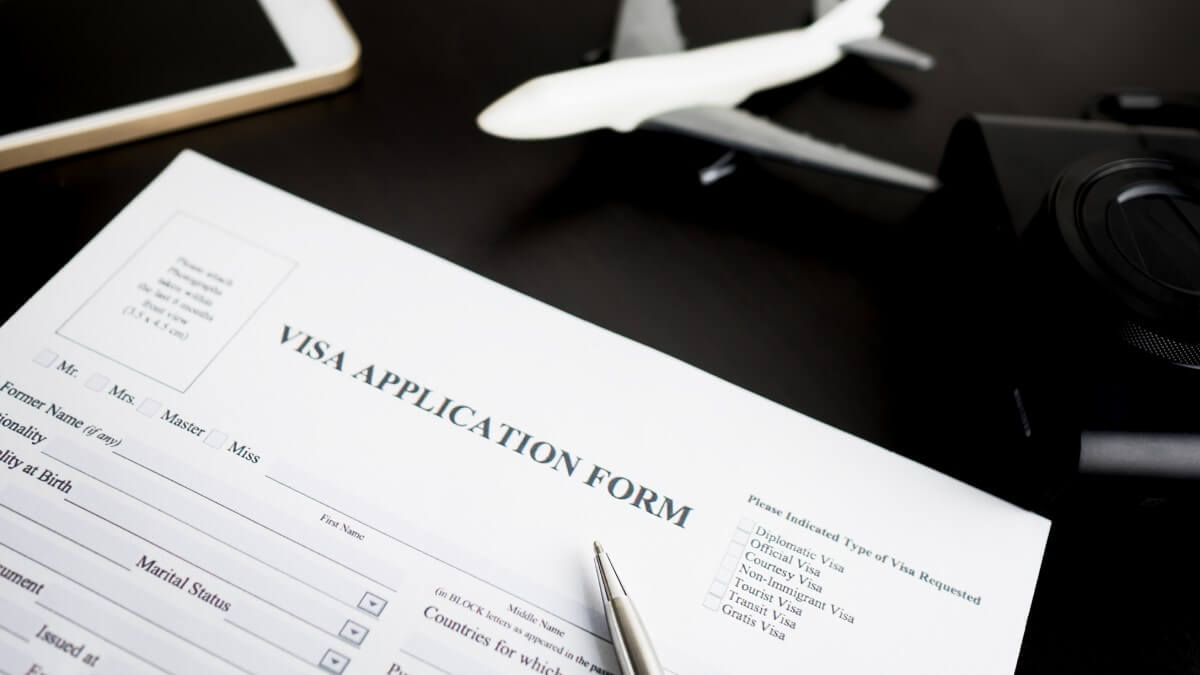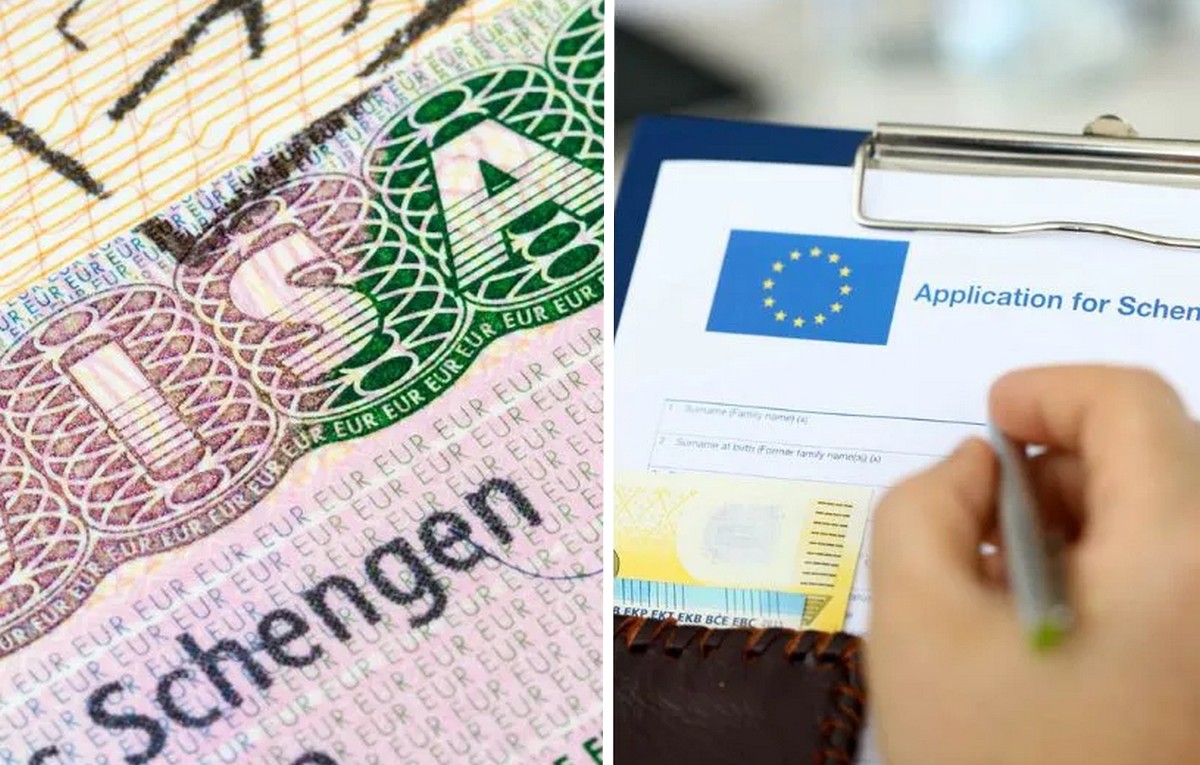Applying for a Schengen visa in 2023 is no easy task as ever. You need to collect a lot of documents, go through an interview and even pay a fee, which is now 33% higher than before the pandemic.
However, obtaining a visa can be easier for many if they just pay attention to some very common mistakes that usually lead to application rejection, according to SchengenVisaInfo.com.
In most cases, these errors occur due to the applicant’s lack of knowledge or lack of understanding of the importance of documents that meet the criteria set by the Schengen country they wish to visit.
Next, we compiled a list of the most common mistakes made by Schengen visa applicants. If you try to avoid them and make sure that the rest of your application file also meets the criteria set by the Schengen authorities, your chances of getting a Schengen visa are much higher.
Collecting required documents based on a random list provided by a friend
Many travelers, especially first-time Schengen visa applicants, make the mistake of taking the advice of family members or friends who have obtained Schengen visas in the past and taking their advice word for word throughout the process.
The documents required to obtain a Schengen visa in many cases differ from one country to another or from embassy to embassy. In addition, visa requirements are constantly reviewed and updated by Schengen embassies around the world.
People who just get a random list from a friend or family member and start collecting documents from it often make the mistake of missing important, newly added requirements or documents required under new criteria.
All applicants for a Schengen visa are advised to collect documents based on the list published by the embassy of the country in which they will be applying.
SchengenVisaInfo.com also has a complete list of documents required to apply for a Schengen visa, which is constantly reviewed and updated according to official sources.
The passport does not meet the requirements
Having a passport with a few months left in it is not enough, and some travelers have learned this the hard way.
The EU has special and strict passport rules for persons applying for a Schengen visa, namely:
- The passport must be valid for six months after the date of the planned trip to the Schengen area.
- The passport must have been issued within the last ten years of the date the passport holder plans to leave the Schengen country he or she is visiting.
- The passport must have at least two blank pages, but they must not be added to the passport later.
Those who do not meet any of these rules are denied a visa.
In addition, travelers planning to obtain a three- or five-year multiple-entry visa should be aware that if their passport is valid for less than the required visa, they will not be granted the latter.
Instead, in most cases, they receive a visa valid for a shorter period of time until their passport expires.
Filling out the application form with information that does not match with other documents

Every traveler must fill out a Schengen visa application form. This is the first document. Many travelers make mistakes by specifying different information in the questionnaire than in other documents.
For example, if their passport is valid for another six months, some indicate on the application that the passport is valid for even longer. In other cases, they write the required visa validity period with different dates than the dates for which they have travel insurance or residence.
Such mistakes, especially when they are made intentionally, can automatically lead to the rejection of the visa application.
The applicant does not have (correct) travel insurance
Refusing to buy travel insurance thinking “nothing will happen to me” is a huge mistake. The embassy does not care whether you are a person who never gets sick or is very wary of accidents. Travel insurance in the amount of 30,000 euros, which covers repatriation in case of death, is mandatory for each person.
In many cases, people get travel insurance for a shorter period of time than they plan to spend in the EU, or buy it with less cover than they need.
In cases where the insurance does not cover repatriation in the event of death, however much it covers other accidents, the requirement to have travel insurance is deemed not to have been met.
Travelers always have the option of purchasing Schengen travel insurance online at a very low price from Europ Assistance or MondialCare.
Submitting an Application Too Early or Too Late
Like the rest, the application time is also regulated by the Schengen Visa Code. According to it, the earliest you can apply is six months before the intended trip, and the latest is 15 working days before the intended trip.
Trying to submit an application, that is, a year in advance, will not end well, even in overcrowded embassies.
The same applies to late submission of an application. People who have previously obtained a visa within a very short period of time, i.e. five days at a particular embassy, and think that the late submission of the next visa application will not be a big problem, risk that their visa application will be delayed or even not accepted in general.
Therefore, every traveler should make sure that he or she applies in advance, but not earlier than six months before the intended trip.
Applying at the wrong embassy/consulate/visa center
Another very common mistake among people who plan to visit several Schengen countries with one visa is applying to the wrong embassy.
In cases where a person wishes to visit two or more Schengen countries with the same visa on a continuous journey, the application must be submitted as follows:
- At the embassy of the country you will visit first if you plan to stay an equal number of days in each country. i.e. if you plan to spend five days in Austria, five days in Germany and five days in France, but will enter the Schengen area through Austria, you should apply to the Austrian embassy.
- You will stay in the country’s embassy the longest if you plan to be in each country for a different number of days. i.e. if you plan to spend three days in Austria, five days in Germany and seven days in France, you should apply to the French Embassy.
Not Bringing Cash to Pay the Application Fee

This is not a mistake that can lead to a visa refusal, but it can cause unnecessary problems.
On the day of the interview, many people do not bring cash to pay the Schengen visa fee, believing that they can pay by card or online. This is not possible as all embassies, consulates and visa centers require travelers to have the exact amount required for the visa in cash.
Trying to pay with large bills can be a challenge, especially if you are one of the first applicants of the day. It is better for every applicant to have the exact amount to avoid headaches.

